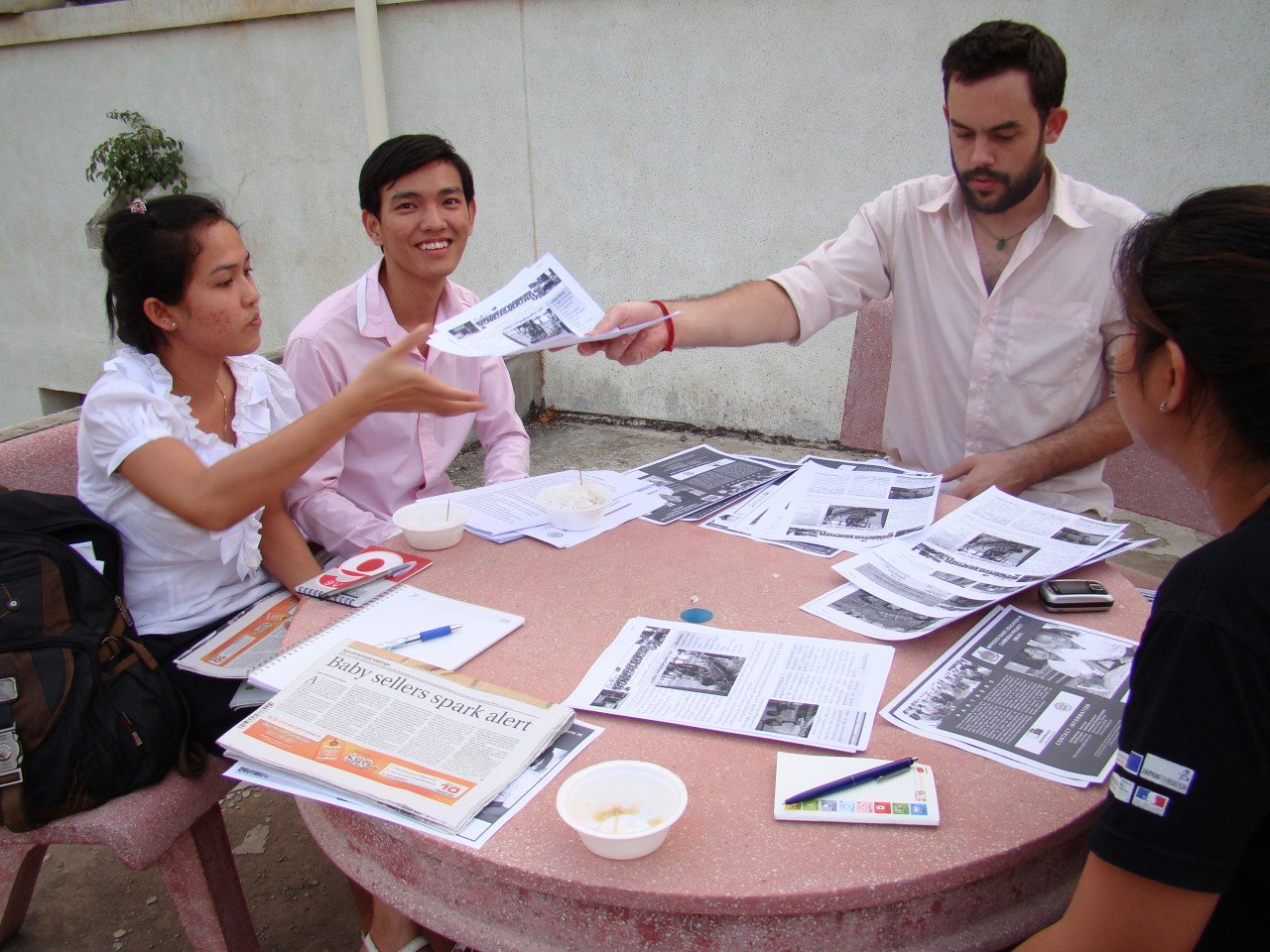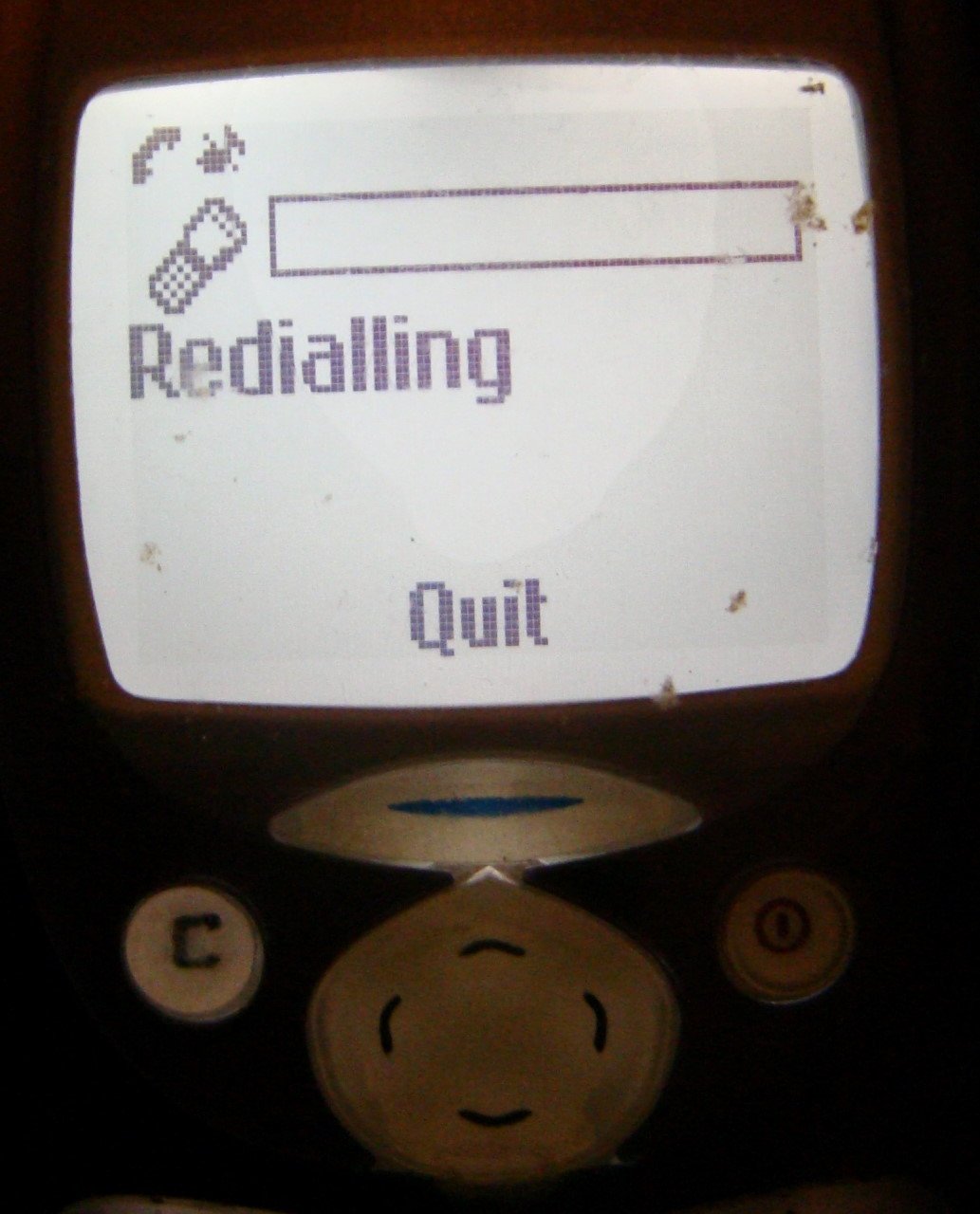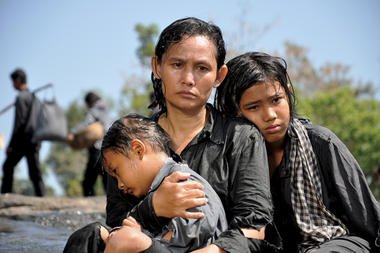
Image via Wikipedia
People are sitting in a room looking at a large TV screen. They are watching a person on the screen and if they want to speak, they have to get out of their seats and go to a desk and talk in a microphone so that the person on the screen can hear and respond. This is the method employed by Sam Rainsy Party members to communicate with their leader, Sam Rainsy, who is now living in self-exile in France.
Sam Rainsy was convicted in January 2010 of destroying public property and racial incitement with Vietnam by pulling up border posts along the Vietnamese border in Svay Rieng province in 2009. On March 1, 2011, Cambodia’s Supreme Court rejected his appeal and his sentence of two years in jail still stands.
“The court is used as a political tool to shut Sam Rainsy’s mouth or eliminate him from the political arena since he is the leader of the opposition party,” said Yim Sovann, a spokesman for the Sam Rainsy Party.
On the other hand, Cheam Yeap, a senior Cambodian People’s Party lawmaker, said the ruling party did not order Sam Rainsy to remove the border posts. “Our country has law, so Sam Rainsy has to face court because of his wrongdoing, and if one day in the future I do something wrong, of course, I will face the court as well,” said Cheam Yeap.
A press release issued on February 22 by the Cambodian Center for Human Rights stated “the convictions against Sam Rainsy may leave the country’s largest opposition party without a leader at the next general election”.
Sam Rainsy fled the country in early 2009 and will serve 12 years in jail if he returns to Cambodia because in a separate case, the Phnom Penh Municipal Court sentenced him to an additional 10 years in jail on charges of forging public documents and disinformation after convicting him of disinformation and falsifying public documents.
The executive director of the Khmer Institute of Democracy (KID) in Cambodia, Hang Chhaya, said what has concerned him is that Cambodia is a democratic country, so Sam Rainsy’s case should not have reached the level of removing his parliamentary immunity and sentencing him since he had rights as a politician. “What the ruling party want is to make a good leader who people see, love and support, have to stay abroad as long as possible,” said Hang Chhaya.
While Prime Minister Hun Sen can stand and talk to CPP members and his supporters directly, Sam Rainsy needs support from technology to be able to communicate with SRP members and supporters.
However, Yim Sovann said the fact that Sam Rainsy is not in Cambodia is not a problem for the party. “If you want to meet the party leader, we can make a phone call or video conference that you can see the picture and there is no difference in communication by having or not having him present,” said Yim Sovann, adding that Sam Rainsy is still the party leader who leads meetings and keeps communicating between all levels of leaders and members.
To gain more support in the upcoming election, the HRP and SRP have been working on merging the two parties. After the 2008 national election, on January 15, 2009, Sam Rainsy and Kem Sokha singed on a joined declaration officially establishing the Democratic Movement for Change. Since then the alliance has not reached 100 percent agreement and recently each party created a working group of five people to discuss the merger.
Mu Sochua, a SRP lawmaker and one of the five people in a merger group on the SRP side, said some conflict of ideas and misunderstandings from the past were the reasons for slowing the merger. However, she said she believed it would be successful soon. “We are democratic people and we have the same goal,” Mu Sochua said.
Mu Sochua said she was sure of success in the next election when the alliance reaches full agreement. She gave as an example Kampot province, where the SRP needs about 10,000 votes more to get one more parliament seat, however the HRU gets more than 14,000 votes. “Because we were not united at that time, about 14,000 votes were useless because none of us got any seats from there,” she said.
“Previously, we didn’t work well on the merger, but now we have a clear objective and we have clear steps to take,” Keat Sukun, a coordinator in merger group on the HRP side, said. He added that both sides had recently found common ground for a lasting unification of the parties.
Keat Sukun said that in Cambodia, each party cannot do everything alone and unification is very important in terms of exchanging human resources.
“It is the right decision to join as an alliance,” said Phnom Penh-based political analyst Chea Vannath, who explained that the seat allocation formula in Cambodia makes small political parties waste a lot of votes if they are not united.
However, she said she is not sure if this unification can last much longer because based on her observations, it would be easy to break up.
“To unite successfully, it’s very important to have trust building between the two parties, as wife and husband do,” said Chea Vannath. “We have to think that there will be a lot of obstacles with each step we take, and if we can trust each other, this unification will last forever.”
“While the frog tries harder, the snake also tries harder,” said Cheam Yeap, explaining that the ruling party was also working harder. Cheam Yeap said the ruling party did not fear the union of opposition parties.
However, Cheam Yeap said: “All CPP members are not advised to ride a horse with a free hand.” He added that they are not just sitting there happy with their victory, but they are working to keep it.
By: Dara Saoyuth
Additional reporting by Sok Eng
This article was publish on LIFT, Issue 61 published on March 09, 2011



